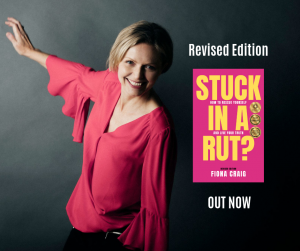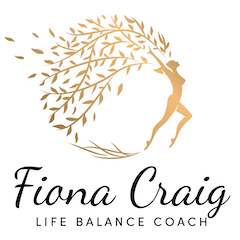Why follow your bliss?
Last August I flew to Bali to escape the Sydney Winter, and stayed at a yoga retreat aptly named Bliss.
After a week of daily beauty treatments, shopping, sightseeing, meditation, yoga, and delicious Balinese dishes, I returned home feeling relaxed and peaceful.
So I followed my bliss, and am back to feeling a more “balanced” life balance coach.
Have you heard of the term, “follow your bliss?”
Whilst I knew the definition of bliss is to find happiness, I was curious about the actual term, follow your bliss.
Not knowing its origins, I thought I’d investigate and share my findings with you.
In 1985, mythologist and writer Joseph Campbell sat down with Bill Moyer to discuss his philosophy on life in a ground breaking 6 part TV series, The Power of Myth (released on Netflix).
Campbell saw as the greatest human transgression “the sin of inadvertence, of not being alert, not quite awake.” This, perhaps, is why the most rewarding part of his interview with Bill Moyer deals with the dictum that has come to encapsulate Campbell’s philosophy on life: “Follow your bliss.”
Campbell meant something very specific by the phrase. It comes from one of the last interviews he did, in which he said:
“If you follow your bliss, you put yourself on a kind of track that has been there all the while, waiting for you, and the life that you ought to be living is the one you are living. Wherever you are — if you are following your bliss, you are enjoying that refreshment, that life within you, all the time.”
In other words, if you do things you are passionate about, you’ll feel fully alive and doors will begin to open for you.
Would you agree?
Following your bliss means to spend time doing those things that bring you happiness and closer to your true nature, and aligned with your authentic self. It’s what I often say to clients, “find what makes your heart sing.” This is the importance of following your bliss particularly in relation to choosing a career.
Have you found career bliss?
Coincidently, around the time of Campbell’s documentary, it was the start of my bliss journey.
In my family, I was the one everyone felt comfortable confiding in me. I was trusted with their secrets, dreams, yearnings and fears. I don’t know how I acquired it, but I seemed to have the ability to listen with empathy and without judgment. I had a peacefulness within me that made me a good counsellor/negotiator, and as I hit my late teens, I became more confident in helping repair ruptured relationships and resolving conflict. My mum used to call me “the little psychologist”.
It seemed like destiny that I would help others for a living, working in fields like psychology, counselling and psychotherapy. That was what made my heart sing. However, I was also blessed with beauty. Some people may find this alarming to say but, in my twenties and thirties, I looked like Michelle Pfeiffer. I’m half Ukrainian with high cheekbones and clear skin.
Family members said I should be a model and/or have a career in TV. So, thinking that would be fun and that they knew what was best for me, I went down that path but was disappointed. I tried modelling, but hated the focus on my looks. I then ended up working in advertising during the “Extravagant Eighties”, but still felt like a fish out of water.
Casting and attending TV commercials might sound glamorous, but I was lost because I wasn’t connecting with my passion for helping others. Deep down, it conflicted with my core values of nurturing, empowerment and connection. I pursued jewellery design – another glamour career suggested by my family – but it wasn’t until (a few years later) I developed chronic fatigue syndrome (CFS) and became bedridden for a good part of a year, that I started to rethink the course my life had taken.
My CFS recovery took five years, and during that time I worked hard to change my mindset, heal my physical body, and then change my career from Jewellery design to social work. I remember my aunt lamenting that I wasted my father’s money, but retail equipped me with good customer and communication skills, teamwork, time management, initiative and responsibility.
As my focus shifted to social care, doors did open for me in terms of meeting the right people to graduate with a Bachelor of Applied Social Science, spent time as a social worker in London, and further studies in Gestalt psychotherapy, which have all led to creating Life Balance Coach.
Goodness! I’ve just realised that I have been coaching, counselling and mentoring women for twenty years to create a life that feels balanced and more meaningful.
Would you like to find your career bliss?
Life Balance Coaching has a career coaching pack called Find Your Dream Career. These sessions are all about finding career direction through uncovering the real you through psychometric testing and personality profiles. Plus self discovery i.e. exploring your unique strengths, talents and knowing your purpose to assist in career exploration and identification and lead to personal and professional satisfaction.
 Fiona Craig is a life coach, psychotherapist and published author of the award winning book, “Stuck in a Rut – How to rescue yourself & live your truth” helping women get unstuck from their job rut and onto finding their dream career. Her transformational career coaching package helps her clients remove the fear, worry and guilt to confidently take the steps towards creating the life they want to live.
Fiona Craig is a life coach, psychotherapist and published author of the award winning book, “Stuck in a Rut – How to rescue yourself & live your truth” helping women get unstuck from their job rut and onto finding their dream career. Her transformational career coaching package helps her clients remove the fear, worry and guilt to confidently take the steps towards creating the life they want to live.
Fiona has been interviewed by The Australian Women’s Weekly, and The New Daily, and written articles for I Am Woman Magazine, Women’s Fitness magazine, Girlfriend Magazine, Career One, Sunday Life Magazine (Fairfax), Collective Magazine, Herald Sun Melbourne, plus several blogs and online publications. You can learn more about working with Fiona at lifebalancecoach.com.au or call 0405 433 217.
Photo by Artem Bali on Unsplash













